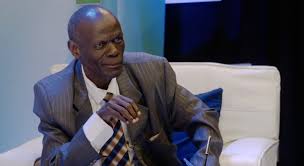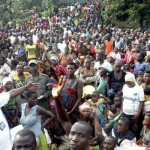The recent Stand-by Class 1 myth got me worried. This made me look into my small home library, and I discovered that leaders normally create myths whenever they understand that Abataka banyiivu (citizens are angry) to divert the peoples’ attention from their real problems. When power was still held by people in Northern Uganda in the 60s, 70s and early 80s, the North despised and discriminated against people from the rest of Uganda. Mr. Apollo Milton Obote more especially hated and despised his Excellency Yoweri Museveni to the marrow.
That’s why the UNLA interim leaders in Tanzania did not include a Westerner! No, not even one. The Uganda National Liberation Front (UNLF) was formed at Moshi on March 26, 1979. The front was led by a council whose members are as follows; Mr. Y.K. Lule was the Chairman, Mr. Akena p’Ojok was the Deputy Chairperson, Prof. Dani Nabudere was Secretary for Political Affairs, Mr. Semei Nyanzi was Secretary for Finance & Administration, Mr. Paul Muwanga was Chairman of the Military Committee. Other members of the council included Andrew Adimola, Mr. Martin Aliker, Mr. Mathias Ngobi, Mr. Ateker Ejalu and Mr. Sam Ssebagereka. The North was still calling the tune especially because of Obote’s relationship with Mwalimu Julius Nyerere.
Earlier in 1971, the Uganda government of President Apollo Milton Obote had been overthrown by the country’s only army on the morning of January 25, 1971 in a well-framed “bloodless coup” led by Maj. Gen. Idi Amin Dada, the Commander of the then Uganda Army (UA). There were numerous reasons that led to the overthrow of Dr. Obote’s government by Gen. Amin, although the army chose to give only 18 points.
Capt. Sam Aswa (later murdered by Idi Amin) was selected to read these 18 points to the public and the press on behalf of Gen. Amin Dada. He (Aswa) said Obote’s government was unwanted and unpopular and that the army had replaced it with what the people and the army of Uganda needed. Sam Aswa’s list went as follows;
1. The unwarranted detentions without trial and for long periods of a large number of people, many of whom are totally innocent of any charges.
2. The continuation of the State of Emergency over the whole country for an indefinite period which is unwanted by everybody.
3. The lack of freedom in the airing of different views on political and social matters.
4. The frequent loss of life and property arising from almost daily cases of robbery with violence and Kondoism without strong measures being taken to stop them. The people feel totally insecure and yet Kondoism increases every day. (Kondoism is a coinage from Luganda the local language of the majority tribe meaning theft).
5. The proposals for National Service which will take every able-bodied person from his home to work in a camp for 2 years could only lead to more robbery.
And thirteen other points which touched on the failure by the political authorities (Government and state) to organize any elections since independence. In spite of the exaggerated nature of some of the points given by the army to overthrow Obote’s civilian government, the truth of the matter was that there was indeed a general discontent among the people of Uganda especially the Baganda, towards Obote’s government. He (Obote) had frustrated and or demoralized the proud Baganda tribe by first exiling and thus speeding the death of their beloved Ssabasajja, Mpologoma, Kabaka, (King) Edward Muteesa II, abolishing their kingdom and imposing on them a perpetual state of emergency. Their jubilation in welcoming the Idi Amin takeover was thus completely understandable.
The Baganda and Ugandans discovered only late the brutal background of Idi Amin, son of a witch doctor mother, who spent a fairly eventful childhood shifting homes, selling mandazi, learning Kiswahili and Luganda by heart, forced to become a Muslim by hard circumstances later referred to as a Nubian, joined the King’s African Rifles (KAR) in 1946 first signed as a kitchen-hand because of his physique who soon joined the regular ranks as a private. He was just the type that the British liked, the type of African that they used to refer to as the “Warrior tribes” black, big, uncouth, uneducated and willing to obey orders.
The British had deployed him to bring down the Mau-Mau freedom fighters and he lynched many of them at Tuso, Kairo, Kinyona and Kangema in Muranga area.
Did the Stand-by Class 1 by any means point to an overthrow of the Uganda civilian government or was it a diversionary myth?
Nabendeh Wamoto S.P. (+256 776 658 433)








